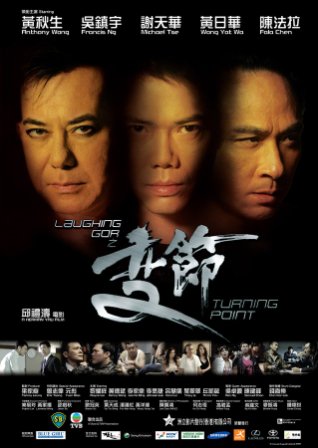Sunday, March 14th, 2010
Laugh Riot Encore: Herman Yau’s TURNING POINT

What is the point of a prequel? Is it meant to flesh out the backstory of a popular character in order to understand how he or she came to be the hero or villain audiences have come to love? Or is it merely a crassly commercial move made to capitalize on the success of a character or series that has probably run its course, but just might have enough juice left to make a few bucks at the box office? I don’t think it’s necessarily an either/or proposition.
Still, there’s a tendency to roll one’s eyes at the mere mention of a prequel (a film trend that is already being supplanted in Hollywood by the reboot — see the back-to-basics Spider-Man 4 for evidence of that). Let’s call it “prequel fatigue.” After all, the most anticipated prequels, if not films of all time were Star Wars: Episodes I-III, which after all that fanfare, ended up disappointing both die-hard and casual fans alike. Of course, not all prequels are bad, but for every one Infernal Affairs 2, there are dozens of shoddy “origin” flicks like Hannibal Rising (Lecter was a samurai!) and Butch and Sundance: The Early Days (Who needs Newman and Redford? We got the Greatest American Hero and the Substitute!).
Why do prequels often suck? Well, sometimes they tell us a story we already know, so there’s no dramatic tension. We’re basically just watching a movie go through the motions to reach a predetermined outcome. At least with Star Wars, there was a central mystery to be uncovered — what made Anakin Skywalker turn to the Dark Side and become Darth Vader? And as we all found out, it was something we never anticipated: yep, mass genocide was a direct result of everybody calling him “Annie” all the time. But I digress. The point I’m trying to make here is that sometimes prequels just can’t live up to the originals.

